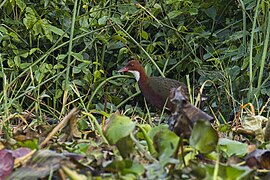Chaukhira: Difference between revisions
Tag: 2017 source edit |
Tag: 2017 source edit |
||
| (2 intermediate revisions by the same user not shown) | |||
| Line 327: | Line 327: | ||
===Employment=== | ===Employment=== | ||
The agricultural sector is the cornerstone of employment in Chaukhira compared to other sectors with absorption reaching 1.9 million people. In addition to the agricultural sector, the other two sectors also absorb labor, namely the large and retail trade sector, car and motorcycle repair, and the processing industry. In the trade sector, there are 688,000 workers, and the processing industry reaches 279,300 people. | The agricultural sector is the cornerstone of employment in Chaukhira compared to other sectors with absorption reaching 1.9 million people. In addition to the agricultural sector, the other two sectors also absorb labor, namely the large and retail trade sector, car and motorcycle repair, and the processing industry. In the trade sector, there are 688,000 workers, and the processing industry reaches 279,300 people. | ||
[[Burgundie]]'s high emphasis on [[Culture_in_Burgundie#Education|education]] translates to a particularly educated and skilled workforce, leading to lower unemployment compared to less educated countries in [[Audonia]]. The islands' economic diversity cushions against overreliance on any single industry, which has demonstrably made the island more resilient during downturns. Since [[Burgundie]] strives for [[Total Economic Engagement]] and espouses equal rights and opportunities regardless of gender, race, ethnicity, ability, or background, Chaukhira benefits from improved access to education and training, impacting employment prospects across various fields. | |||
===Agriculture=== | ===Agriculture=== | ||
| Line 334: | Line 336: | ||
===Tourism and hospitality=== | ===Tourism and hospitality=== | ||
=== | ====Resorts==== | ||
====Cruises==== | |||
====Recreation==== | |||
====Key tourism and hospitality companies==== | |||
===Logging/Mineral extraction=== | |||
The coal deposits of Chaukhira amount to 2.24 billion tons or 48.45 percent of the total national reserves. The province also has 400 billion standard cubic feet of natural gas and 75.74 standard cubic feet of natural oil. | The coal deposits of Chaukhira amount to 2.24 billion tons or 48.45 percent of the total national reserves. The province also has 400 billion standard cubic feet of natural gas and 75.74 standard cubic feet of natural oil. | ||
====Paper milling==== | |||
====Mining==== | |||
====Drilling==== | |||
===Fishing=== | ===Fishing=== | ||
===Fishing and fisheries=== | |||
====Distant-water fishing fleet==== | |||
====Local commercial fishing==== | |||
====Aquaculture==== | ====Aquaculture==== | ||
Main article: {{wp|Aquaculture}} | Main article: {{wp|Aquaculture}} | ||
| Line 346: | Line 359: | ||
*{{wp|oyster farming}} | *{{wp|oyster farming}} | ||
*{{wp|algaculture}} | *{{wp|algaculture}} | ||
===Artisanal/heritage industries=== | |||
===Science and research=== | |||
===Manufacturing=== | |||
===Creative industries=== | |||
===Sports and leisure=== | |||
===Trade=== | ===Trade=== | ||
| Line 398: | Line 420: | ||
====Customs and tariffs==== | ====Customs and tariffs==== | ||
Main article: {{wp|Customs}} | Main article: {{wp|Customs}} | ||
===Infrastructure=== | ===Infrastructure=== | ||
Revision as of 11:32, 1 May 2024
Script error: The module returned a nil value. It is supposed to return an export table.
Trade Island of Chaukira
Chaukhira | |
|---|---|
 Abu-Ouncanobi from the air | |
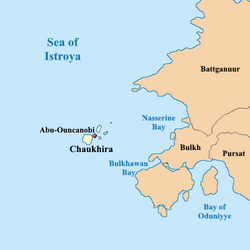 | |
| Nation | |
| Constituent Country equivalent | Burgoignesc Overseas Territory Assembly |
| Geographic Designation | Audonio-Alshari Burgundie |
| Capital | Abu-Ouncanobi |
| Government | |
| • Governor-Epistates | Marcel-Anwar bin Qadafim |
| Area | |
| • Total | 9,090.858 km2 (3,510.000 sq mi) |
| Population (2030) | |
| • Total | 1,254,493 |
| • Density | 140/km2 (360/sq mi) |
| Demonym | Chaukhiroise |
Geography
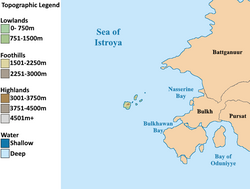
-
rice paddy
Climate
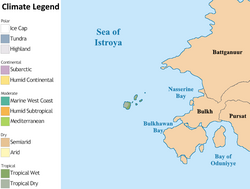
Chaukhira has a Tropical rainforest climate climate zone with significant rainfall even in its driest months. The climate is hot and humid with a lot of rainfall throughout the year. The annual average temperature is around 27.3 °C (81.1 °F). Except for precipitation and monsoonal wind direction, Chaukhira experiences no other seasonal change throughout the year. The average rainfall annually is 2,623 millimeters or 103 inches. During its wettest months, the provinces lowlands are frequently inundated by torrential rains. However, in its driest months, many regional peatlands dry out, making them more vulnerable to wildfires, and causing prolonged haze in the direr months.
| Climate data for Chaukhira | |||||||||||||
|---|---|---|---|---|---|---|---|---|---|---|---|---|---|
| Month | Jan | Feb | Mar | Apr | May | Jun | Jul | Aug | Sep | Oct | Nov | Dec | Year |
| Average high °C (°F) | 30.8 (87.4) |
31.2 (88.2) |
31.5 (88.7) |
32.1 (89.8) |
32.4 (90.3) |
31.9 (89.4) |
31.8 (89.2) |
32.1 (89.8) |
32.5 (90.5) |
32.6 (90.7) |
31.9 (89.4) |
31.1 (88.0) |
31.8 (89.3) |
| Daily mean °C (°F) | 26.8 (80.2) |
27.1 (80.8) |
27.2 (81.0) |
27.7 (81.9) |
28.0 (82.4) |
27.4 (81.3) |
27.0 (80.6) |
27.2 (81.0) |
27.5 (81.5) |
27.7 (81.9) |
27.4 (81.3) |
27.0 (80.6) |
27.3 (81.2) |
| Average low °C (°F) | 22.9 (73.2) |
23.0 (73.4) |
23.0 (73.4) |
23.4 (74.1) |
23.6 (74.5) |
22.9 (73.2) |
22.3 (72.1) |
22.4 (72.3) |
22.5 (72.5) |
22.9 (73.2) |
23.0 (73.4) |
23.0 (73.4) |
22.9 (73.2) |
| Average rainfall mm (inches) | 277 (10.9) |
262 (10.3) |
329 (13.0) |
263 (10.4) |
213 (8.4) |
122 (4.8) |
104 (4.1) |
107 (4.2) |
120 (4.7) |
186 (7.3) |
274 (10.8) |
366 (14.4) |
2,623 (103.3) |
| Mean monthly sunshine hours | 169 | 118 | 130 | 150 | 174 | 127 | 131 | 149 | 118 | 160 | 132 | 120 | 1,678 |
| [citation needed] | |||||||||||||
Flora and fauna
Many of the characteristic Audonian species—large mammals such as the elephant, rhinoceros, giraffe, zebra, and antelope and predators such as lions and leopards—do not exist on Chaukhira. In addition, the island has been spared the great variety of venomous snakes indigenous to the Audonian continent. Although it is assumed that most life forms on the island had an Audonian origin, isolation has allowed old species—elsewhere extinct—to survive and new species unique to the island to evolve. Thus, a great number of plant, insect, reptile, and fish species are endemic to Chaukhira, and all indigenous land mammal species—66 in all—are unique to the island. Chaukhira was once covered almost completely by forests, but slash and burn practices for dry rice and rubber cultivation, Secondary growth, which has replaced the original forest and consists to a large extent of traveller's trees, raffia palm, and baobabs, is found in many places. The country has some 900 species of orchid. Bananas, mangoes, coconut, vanilla, and other tropical plants grow throughout.
Fauna
History
Geological history
Early settlements
Pre-Occidental history
Late modern period
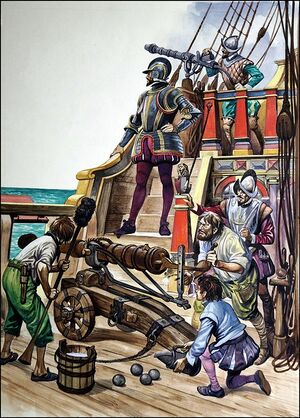 |
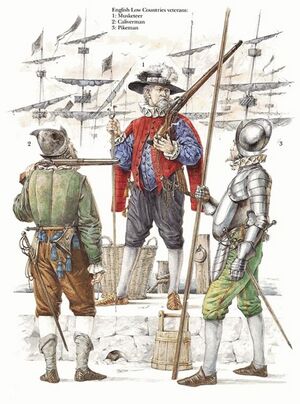 |
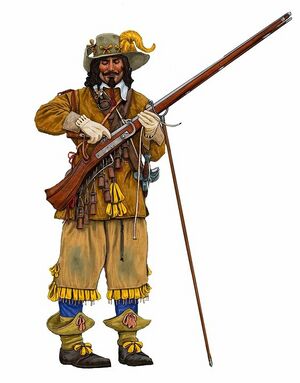 |
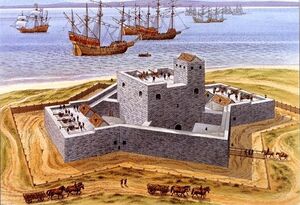 |
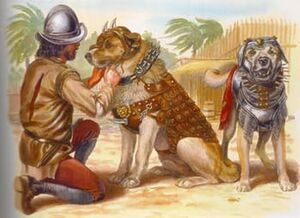 |
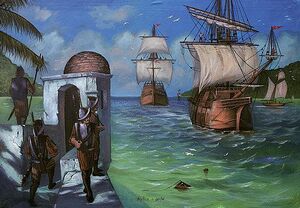 |
- Coffee plantation
- Coaling station
- Rubber plantation
Contemporary period
Second Great War
During the Second Great War (1934 to 1943), Chaukhira was the site of a number of operations initiated by both Burgundie and Caphiria through its proxy Zaclaria. In 1937, Zaclarian forces invaded the Chaukhiroise island of Taoulga which they were able to hold for the duration of the war.
Politics and government
Chaukhira is part of the Burgoignesc Overseas Territory Assembly's Audonio-Alshari Burgundie geographic designation. Burgoignesc Overseas Territory Assembly is a constituent country equivalent of Burgundie with its own assembly, prime minister, budget, and laws. Burgundie's national governmental influence is limited to subsidies, education, and security, however, its financial and cultural institutes cast a long shadow across Sudmoll.
Chaukhira is a province within Burgoignesc Overseas Territory Assembly with its own semi-elected Governor-Epistates, representative legislative body, and court system.
Chaukhiroise are Burgoigniacs/Burgoignix with complete civil and economic rights, and citizenship (political rights) under the same federal service criteria as all residents of Burgundie. Burgoignesc is the official language but Arabic and Burgoignesc are both in use. However, there was a time during the 1960s and 1970s when children were forbidden to speak Arabic in schools. Arabic is now taught in schools; it is sometimes even a requirement for employment.
Provincial executive
The provincial executive is the Governor-Epistates. Three candidates are elected by a single transferable vote election held every 5 years, the three candidates are presented to the Court of St. Alphador and the next Governor-Epistates is chosen from these candidates. If the citizenry rejects the selection, a run-off election is held with the remaining two candidates.
Provincial legislature
Like the Citizens Court of the National Assembly (Burg. La Assemblee de Ciutadans de l'Assemblee Nacional, ACAN), The Chaukhiroise Citizen's Court of the Provincial Assembly is a unicameral legislator. It makes provincial law, has the power of the provincial purse, and has the power of impeachment, by which it can remove sitting members of the provincial government. The Assembly has three seats for each province, one for the Burgoignesc Overseas Territory Assembly's Chaukhira liaison, 3 for the clergy, 3 seats reserved for municipal leaders, and 3 for a rota of private business leaders. On 6 occasions throughout the year 3 more seats are opened to the public to debate topics that are not on the annual legislative agenda.
Military
The islands of Chaukhira are home to a myriad of small naval and Revenue Guard stations, and airstrips. While Chaukhira is a key component of La Garrote it became effectively cut off from the maritime world when the 1982 LON Law of the Sea passed the Economic Exclusion Zone provision, essentially codifying that marine traffic to and from Chaukhira must pass through the waters of other nations. Since that time there have been no instances of a restriction of the Freedom of the seas in the Aab-e-Farus or the al-Zelaq Straits, but the Navy of Burgundie's Grand Eastern Command is postured for a break out of Chaukhira in the event of war. As such the largest naval base on the islands is primarily used as a transit port and not a permanent station for any of the commands largest and most valuable ships. It has no large scale drydock facilities and berthed ships are never allowed to fully turn off their engines and systems. As such, it is one of the most hated billets or transit points for sailors because liberty is always limited on scope and duration.
Military installations
| TBD | |
|---|---|
| | |
| Site information | |
| Owner | Burgoignesc Security Forces |
| Operator | Navy of Burgundie |
| Controlled by | TBD |
| Condition | Operational |
| Site history | |
| Built | TBD |
| Garrison information | |
| Occupants | Navy
|
Law Enforcement
- National Gendarmerie of Burgundie, Overseas Gendarmerie, Middle Seas Command.
- Revenue Guard, Grand Station of the Orient
Vice
Since 2003, the drug trade, especially the opium trade has become a major issue in Chaukhira when the Alainfisali Kishahurav network expanded onto the islands. The Revenue Guard's Grand Station of the Orient has increased patrols, monitoring, and personnel on the islands. The issue has also sparked a public health emergency which was called into effect in 2004 and remains in effect today.
Economy
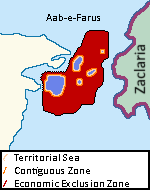
There are five sectors that encompass economic activity in Chaukhira: the processing industry, mining, agriculture, construction, and large and retail trade, and economic growth is also supported by tourism.
Standard of living
Employment
The agricultural sector is the cornerstone of employment in Chaukhira compared to other sectors with absorption reaching 1.9 million people. In addition to the agricultural sector, the other two sectors also absorb labor, namely the large and retail trade sector, car and motorcycle repair, and the processing industry. In the trade sector, there are 688,000 workers, and the processing industry reaches 279,300 people.
Burgundie's high emphasis on education translates to a particularly educated and skilled workforce, leading to lower unemployment compared to less educated countries in Audonia. The islands' economic diversity cushions against overreliance on any single industry, which has demonstrably made the island more resilient during downturns. Since Burgundie strives for Total Economic Engagement and espouses equal rights and opportunities regardless of gender, race, ethnicity, ability, or background, Chaukhira benefits from improved access to education and training, impacting employment prospects across various fields.
Agriculture
The agricultural sector is the backbone of the economy in Chaukhira harvesting rubber, oil palm, and coffee, tea, and vegetables across 74 thousand hectares of arable land. The potential of agricultural resources is quite prominent with an annual production of rice reaching 420 thousand tons, corn production reaching 28.9 thousand tons, soybeans production reaching 1.6 thousand tons, palm oil production reaching 271.8 thousand tons, coffee (dry beans) production reaching 13.52 thousand tons, coconut production reaching 6.5 thousand tons.
Agrinergie
Main article: Agrivoltaics
Tourism and hospitality
Resorts
Cruises
Recreation
Key tourism and hospitality companies
Logging/Mineral extraction
The coal deposits of Chaukhira amount to 2.24 billion tons or 48.45 percent of the total national reserves. The province also has 400 billion standard cubic feet of natural gas and 75.74 standard cubic feet of natural oil.
Paper milling
Mining
Drilling
Fishing
Fishing and fisheries
Distant-water fishing fleet
Local commercial fishing
Aquaculture
Main article: Aquaculture Aquatic life farming, in general
- Pisciculture- fish farming
- Mariculture- Saltwater fish farming
- shrimp farming
- oyster farming
- algaculture
Artisanal/heritage industries
Science and research
Manufacturing
Creative industries
Sports and leisure
Trade
| Port Abu-Oun | |
|---|---|
| Location | |
| Country | |
Transshipment
Main article: Transshipment
Customs and tariffs
Main article: Customs
Infrastructure
Maritime
Lighthouses
Rail
Chaukhira uses Standard gauge, 1,435 mm (4 ft 8+1⁄2 in) for both freight and passenger rail.
Istroyan Rail- Istroyan Rail (Burg: Istroie Ferroviaire), is the public-private joint-venture, intercity, passenger rail operator in Torlen, Antilles, Alcairet, and Chaukhira. It owns and operates all rail corridors, rights of way, and rolling stock that serve this purpose.
Roads
Air
Energy and electricity
Phone service and internet
See also
- Pages using duplicate arguments in template calls
- Pages with non-numeric formatnum arguments
- Pages using infobox settlement with no coordinates
- All articles with unsourced statements
- Articles with unsourced statements from December 2025
- Articles with invalid date parameter in template
- Pages using country topics with unknown parameters
- Burgundie
- Sub-national Regions in Burgundie
- Islands
- Burgoignesc islands









